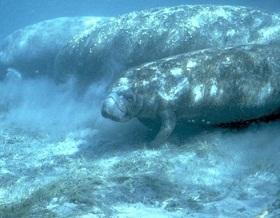Using AI to control energy for indoor agriculture
30 September 2024
Published online 31 January 2013

Sirenia are an order of marine mammals that feed exclusively on plant life and include the dugongs and manatees. Their origin has posed a quandary to researchers: the animal is a close relative of the elephant, yet the oldest known fossils were found in Jamaica, far from the elephant's ancestral home of Africa.
A piece of fossilized skull found in Djebel Chambi National Park in Tunisia in 2008 is a new clue. It is thought to be the oldest known ancestor of modern-day sirenia. Researchers from the Institute of Evolutionary Sciences, France, and the National Office of Mines, Tunisia, published their find in PLoS ONE in early January 2013.
The researchers used X-ray microtomography to create a virtual reconstruction of the skull. By comparing its morphology to the Jamaican fossil, they ascertained that the Tunisian fossil represents an older ancestor.
The morphology and high density of the bone suggests that this specimen was already adapted to aquatic life, though probably only in fresh water — an ancient freshwater lake once lay were the fossil was found.
The researchers suggest in their paper that the first wave of sea cow migrants out of Africa would have most likely already adapted to saltwater.
doi:10.1038/nmiddleeast.2013.17
Stay connected: